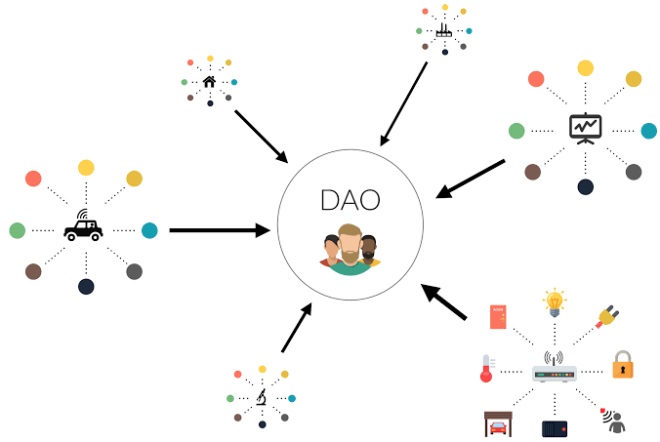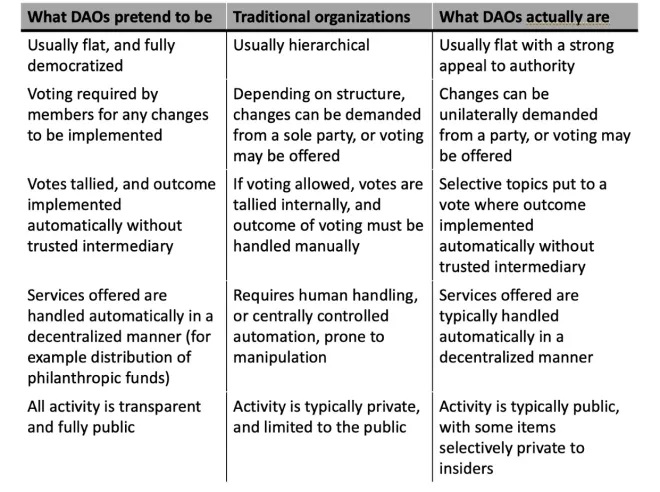
At a high level, a DAO is a decentralized autonomous organization that is governed and controlled by its community. They are made possible by the blockchain and by the monetary incentives that exist in Web3.
In a perfect world, DAOs would have no central leaders — its fate determined only by its community through democratic means.
The Ethereum docs describes them as follow:
Register for Tekedia Mini-MBA edition 19 (Feb 9 – May 2, 2026): big discounts for early bird.
Tekedia AI in Business Masterclass opens registrations.
Join Tekedia Capital Syndicate and co-invest in great global startups.
Register for Tekedia AI Lab: From Technical Design to Deployment (next edition begins Jan 24 2026).
Think of them like an internet-native business that’s collectively owned and managed by its members. They have built-in treasuries that no one has the authority to access without the approval of the group. Decisions are governed by proposals and voting to ensure everyone in the organisation has a voice.
There’s no CEO who can authorise spending based on their own whims and no chance of a dodgy CFO manipulating the books. Everything is out in the open and the rules around spending are baked into the DAO via its code.
What DAOs are today
DAOs in their current manifestation are anything but the ideal they are trying to promote. They are just a feel good tool used by their creators-insiders to push the crypto/blockchain narrative of decentralization while staying in the shadows.
The mask and anonymity that blockchain and DAOs provide is dangerous when you consider that money is the incentive to keep interests aligned.
But even DAOs whose creators are public are susceptible to centralization— at least at the start. As unfortunate as it is, the appeal to an authority is very human— especially in topics where we know little about.
In the case of blockchain projects, there is no authority figure better than the creators themselves.
That’s fine as long as monetary incentives are aligned between the public and the DAO creators. But when that changes, then the incentive for the creators/insiders is to put their interest above that of the public.
Moreover, as much as we want to believe that community participation is good governance, it has limits.
I’ve seen quite a few projects where the original creators passed on authority to a DAO, or so they say. Often, they state that all decisions will be community driven. But then that begs the question:
Why is it that some decisions are voted on by the DAO, while others are decided by the creators?
If the creation of a token is put to a community vote, why is the price of that token unilaterally decided?
why are investors selected by the creators?
why is it that information can be withheld by the creators from the community?
If the tenets of DAOs is full Decentralization— transparency in the public, how can it be that material information is withheld from the community and public ?

DAOs pretend that they are community driven, open and transparent. The reality is that DAOs are just traditional organizations masquerading as something they are not. They are wolves in sheeps clothes. At least traditional organizations are transparent about what they are — DAOs not so. Which is ironic if you really think about it.



